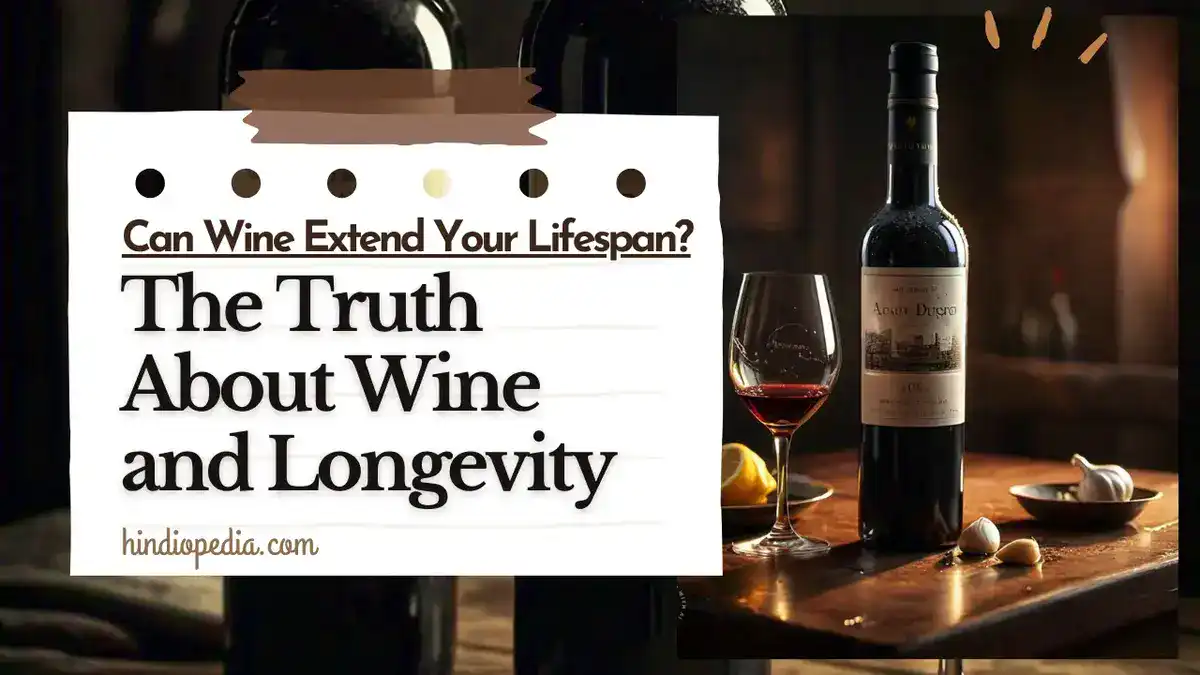Is Wine the Secret to a Longer Life? Discovering the Health Benefits of Wine
Many of us enjoy a glass of wine with dinner. But is wine the secret to a longer life? This question has intrigued scientists and health enthusiasts alike. Let’s explore the potential health benefits of wine and what science has to say about its role in longevity.

The French Paradox
The French are known for their love of rich foods. Despite this, they have lower rates of heart disease compared to other Western countries. This phenomenon is known as the “French Paradox.” Researchers believe that moderate wine consumption, particularly red wine, might play a role.
What Makes Wine Special?
Wine, especially red wine, is rich in antioxidants. These include polyphenols, resveratrol, and flavonoids. Antioxidants help fight oxidative stress and inflammation in the body. Let’s break down these components and their potential benefits:
| Component | Description | Potential Benefits |
|---|---|---|
| Polyphenols | Plant-based compounds found in wine | Reduce inflammation, improve heart health |
| Resveratrol | Found in the skin of grapes | Anti-aging properties, supports brain health |
| Flavonoids | A group of plant metabolites | Lower blood pressure, improve blood vessel function |
Resveratrol: The Star Antioxidant
Resveratrol has gained a lot of attention. Found in grape skins, it has potential anti-aging properties. Studies suggest it might protect the brain and even improve lifespan in certain organisms. However, human studies are still ongoing, and more research is needed.
Wine and Heart Health
Moderate wine consumption is linked to better heart health. It may improve levels of good cholesterol (HDL) and reduce the risk of heart disease. The antioxidants in wine help prevent damage to blood vessels, reduce bad cholesterol (LDL), and prevent blood clots.
How Much Wine is Beneficial?
Moderation is key. For women, this means up to one glass per day. For men, up to two glasses per day. Exceeding these amounts can lead to health risks such as liver damage and increased cancer risk.
Beyond Heart Health
Wine’s benefits might extend beyond heart health. Some studies suggest moderate wine consumption can improve gut health, boost mental health, and even support weight management. However, these benefits should be weighed against the potential risks of alcohol consumption.
The Mediterranean Diet
The Mediterranean Diet, often associated with longevity, includes moderate wine consumption. This diet emphasizes whole foods, healthy fats, and lean proteins. Wine is consumed in moderation, typically with meals. This holistic approach to eating may contribute to the longevity observed in Mediterranean populations.
Comparing Wine Types
Not all wines are created equal. Red wine is often considered more beneficial than white wine due to its higher antioxidant content. Here’s a quick comparison:
| Type of Wine | Antioxidant Content | Health Benefits |
|---|---|---|
| Red Wine | High | Heart health, anti-aging, brain health |
| White Wine | Moderate | Heart health, less studied for other benefits |
Wine vs. Other Alcoholic Beverages
Wine is often compared to other alcoholic beverages like beer and spirits. While moderate alcohol consumption in general can offer some health benefits, wine’s unique composition of antioxidants sets it apart.
Wine and Social Health
Drinking wine is often a social activity. Social interactions can improve mental health and contribute to a sense of well-being. Sharing a glass of wine with friends or family can foster social bonds, which are crucial for a long and healthy life.
The Role of Lifestyle
It’s important to remember that wine alone is not a magic bullet. A healthy lifestyle is crucial. This includes a balanced diet, regular exercise, and not smoking. Wine can be a part of this lifestyle, but it should not be the sole focus.
What Science Still Needs to Explore
While many studies highlight the benefits of moderate wine consumption, there are still gaps in our understanding. Long-term studies on the effects of wine on lifespan and specific health outcomes are needed. Additionally, understanding how wine interacts with different lifestyles and genetic backgrounds can provide more personalized health recommendations.
Ethical and Environmental Considerations
The production of wine also raises ethical and environmental questions. Sustainable viticulture practices are gaining attention. These practices aim to reduce the environmental impact of wine production and ensure fair labor practices. Choosing wines from sustainable sources can support these efforts.
Potential Risks
It’s essential to be aware of the potential risks. Excessive wine consumption can lead to addiction, liver disease, and an increased risk of certain cancers. Pregnant women and individuals with certain health conditions should avoid alcohol altogether.
The Bottom Line
So, is wine the secret to a longer life? It might play a role when consumed in moderation as part of a balanced lifestyle. The antioxidants in wine, especially red wine, offer several health benefits. However, it’s not a cure-all. Enjoy wine as part of a healthy, balanced diet, and always drink responsibly. The journey to longevity is multifaceted, and wine can be one enjoyable part of it.
By exploring aspects of wine that others often overlook, such as ethical production and its role in social health, this article aims to provide a comprehensive look at wine’s potential benefits. Remember, moderation is key, and a healthy lifestyle encompasses more than just what’s in your glass.







